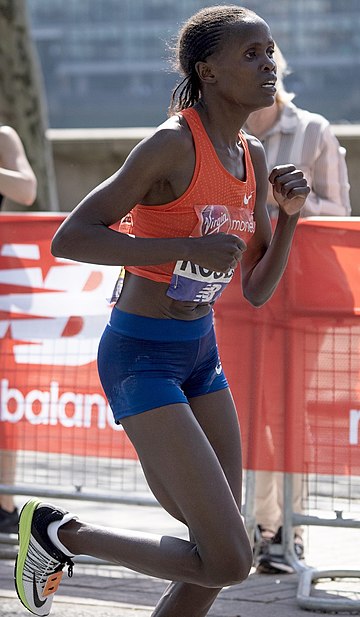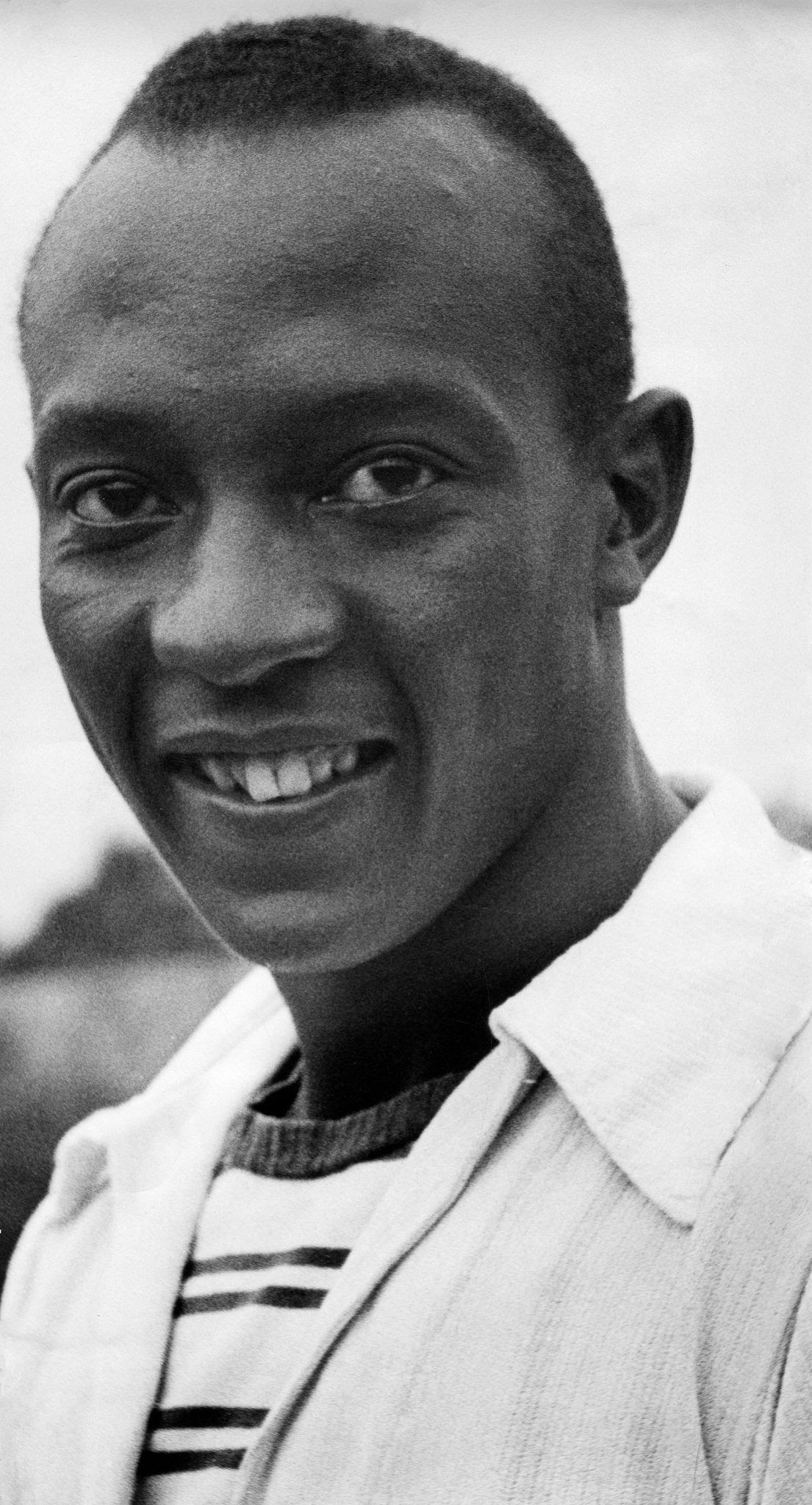
As a student in a Cleveland high school, Owens won three events at the 1933 National Interscholastic Championships in Chicago. In one day, May 25, 1935, while competing for Ohio State University(Columbus) in a Western (later Big Ten) Conference track-and-field meet at the University of Michigan(Ann Arbor), Owens equaled the world record for the 100-yard dash(9.4 sec) and broke the world records for the 220-yard dash (20.3 sec), the 220-yard low hurdles (22.6 sec), and the long jump (8.13 metres [26.67 feet]). Owens’s performance at the 1936 Berlin Olympics has become legend, both for his brilliant gold-medal efforts in the 100-metre run (10.3 sec, an Olympic record), the 200-metre run (20.7 sec, a world record), the long jump (8.06 metres [26.4 feet]), and the 4 × 100-metr relay(39.8 sec) and for events away from the track. Jesse Owens struggled to find work after the Olympics. He raced against horses for money and worked as a gas station attendant and a playground janitor. Using his fame to his advantage, Owens began working in public relations in the 1950s, traveling the country and making paid appearances at public events.A heavy smoker, Jesse Owens died of lung cancer on March 31, 1980, in Tucson, Arizona. Four years after his death, a street in Berlin was renamed in his honour. In 1990 Owens was posthumously awarded the Congressional Gold Medal.

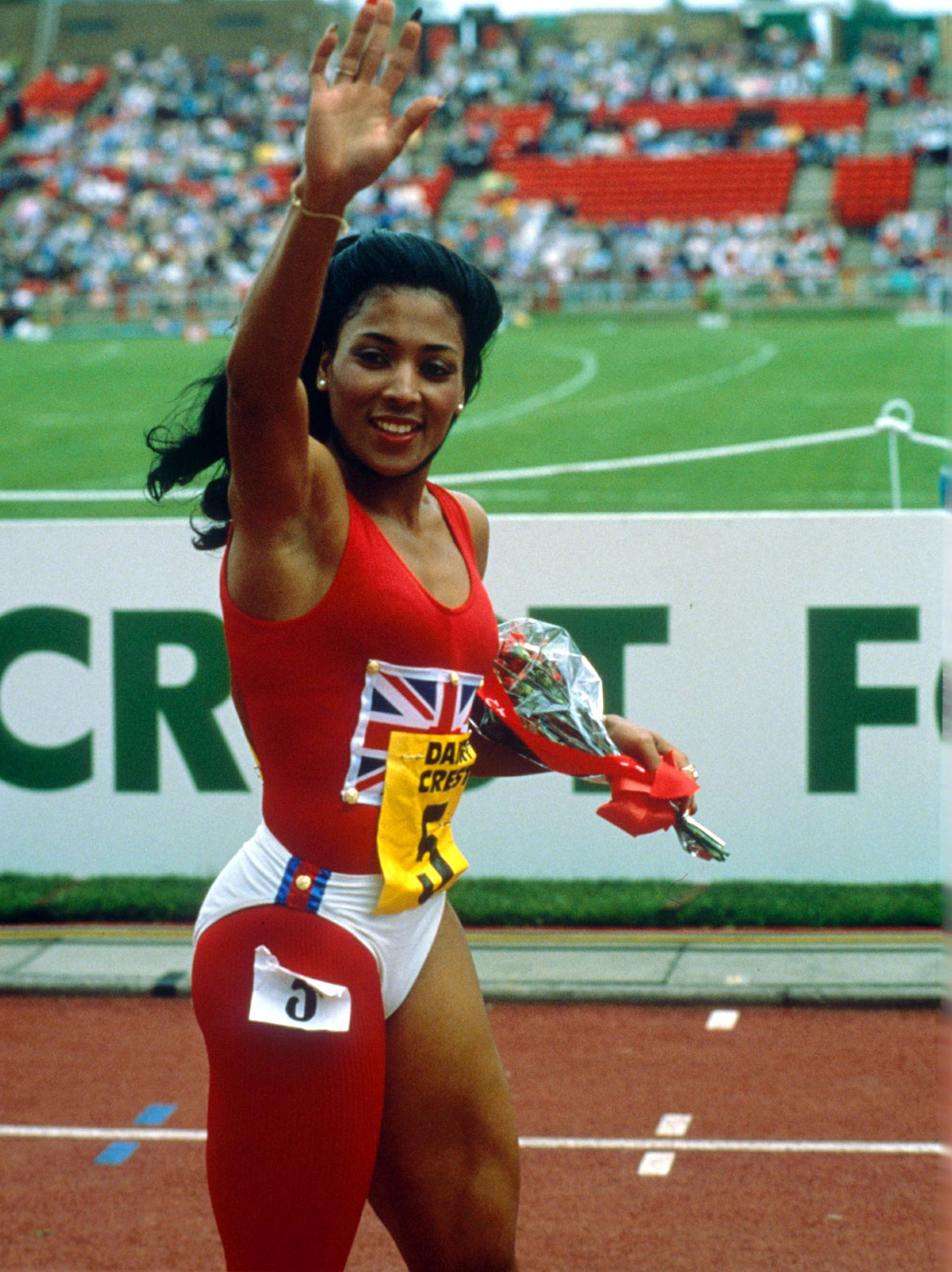
Flo Jo” started running at age seven, chasing jackrabbits to increase her speed. In 1980 she entered the University of California, Los Angeles, to train with coach Bob Kersee. At the 1984 Olympics in Los Angeles, she won a silver medal in the 200-metre race and quickly became a media celebrity with her 6-inch (15-cm) decorated fingernails and eye-catching racing suits. Disappointed with her performance, however, she went into semi retirement. In 1987 she rededicated herself to the sport, adopting an intense weight-training program and altering her starting technique. The changes produced dramatic results. At the 1988 Olympic trials, Griffith Joyner set a world record in the 100-metre sprint (10.49 seconds), beating the old mark by 0.27 second and improving her previous best by more than half a second. Later that year at the Olympics in Seoul, she captured three gold medals (100 metres, 200 metres, and 4 × 100-metre relay) and a silver (4 × 400-metre relay). In 1988 Griffith Joyner received the Sullivan Award as the nation's top amateur performer. After retiring in 1989, Griffith Joyner established a foundation for underprivileged children and from 1993 to 1995 served as the co-chair of the President's Council on Physical Fitness. A comeback attempt in 1996 ended following a leg injury. She was inducted into the Track and Field Hall of Fame in 1995.
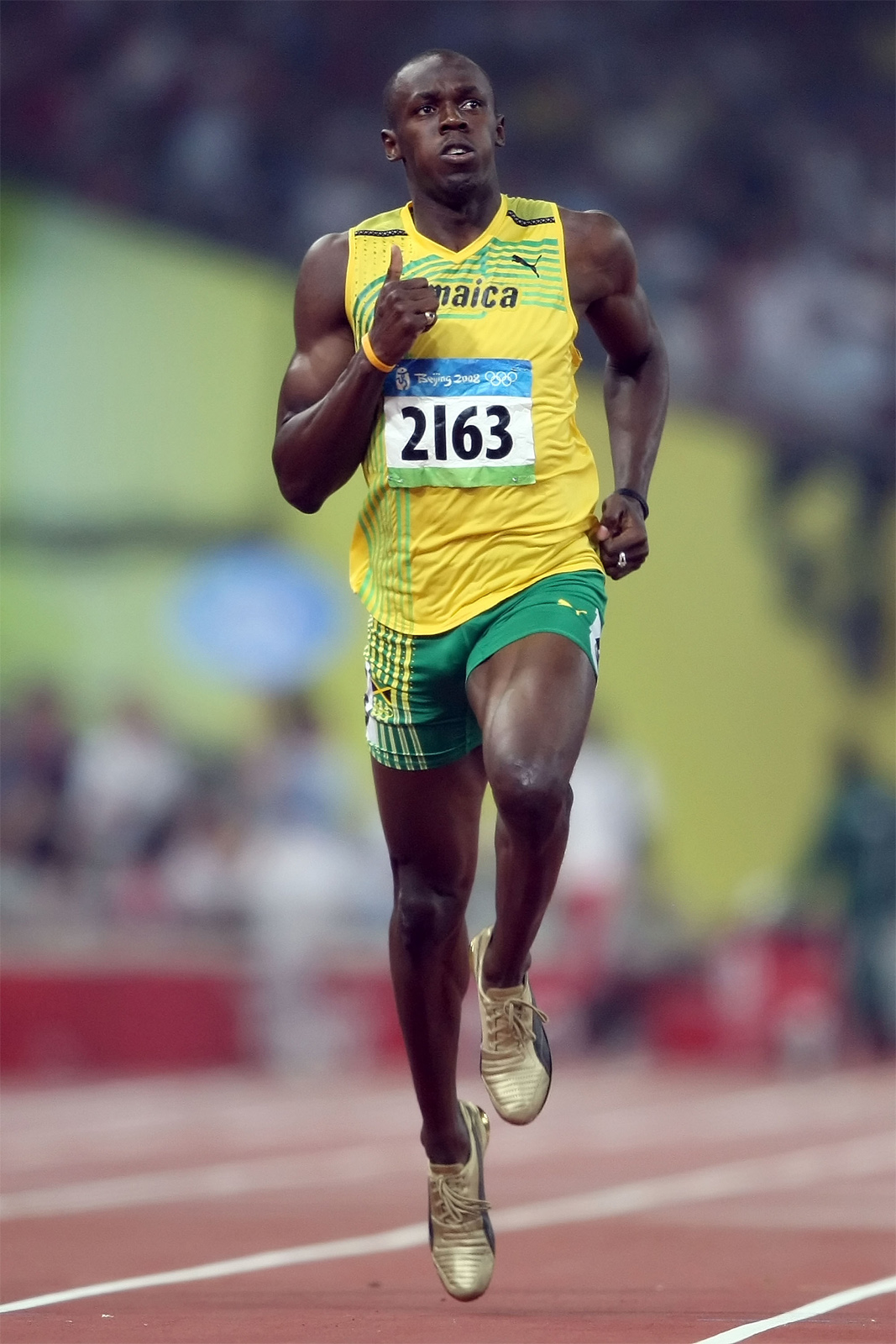
Usain Bolt (1986-Present)
At the age of 14, Bolt won the high school championship and took the silver medal in the 200-meter race. At 15, he went to the 2003 World Junior Championships in Kingston, Jamaica. He won the 200-meter race and became the youngest junior gold medalist. He was given the nickname "Lightning Bolt" and has lived up to that name. Usain Bolt turned professional in 2004 under the guidance of his coach Fitz Coleman. He ran in the CARIFTA Games in Bermuda. He ran the 200 meters in under 20 seconds, making him the first junior sprinter to ever do so. Bolt faced some injuries in 2005 leading him to work on flexibility and, in turn, increasing his speed. He was determined to regain his full strength and working with determination, he did just that. Usain Bolt has eight gold medals as a reigning champion at the 2008, 2012 and 2016 Summer Olympics. If not for a teammate testing positive for a performance-enhancing drug, and the team being stripped of the gold, Bolt would have had nine gold medals. He is also an eleven-time World Champion. Bolt was the first athlete to win three titles in both the 100 meters and 200 meters at the World Championship competition, until his relay team was stripped of their medals. He is referred to as the greatest sprinter of all time and often called the world's fastest man. His fastest run on record is 9.58 seconds in the 100 meters. No one has yet to beat this record.
Marita Koch (1957-Present)
Marita Koch, East German athlete who collected a remarkable 16 individual and team world records in outdoor sprints, as well as 14 world records in indoor events. In her only Olympic Games, at Moscow in 1980, she won two medals. An injury forced Koch to withdraw from the 1976 Olympics in Montreal, where she had been a favoured competitor. She set the first of her indoor records the following year in Milan, running the 400-metre sprint in 51.80 sec. Her first outdoor record came in July 1978, when she ran the 400 metres in 49.19 sec; she topped that by setting two more 400-metre world records in August. The 400 metres proved to be her best event: she won the gold medal at the 1980 Olympics in Moscow and in 1985 set her final world record (47.60 sec) in the 400 metres at the World Cup meet in Canberra, Australia. This record lasted into the 1990s. Challenged by a talented East German rival, Marlies Göhr, Koch achieved indoor success, becoming the world’s best runner in the 50-metre (1980) and 60-metre (1981, 1983, 1985) dashes. In 1979 she became the first woman to run the 200-metre sprint in less than 22 sec; in 1984 she ran her greatest 200-metre dash, tying a world record of 21.71 sec. She was a member of East German relay teams, including the 4 × 100-metre team that, led by Koch and Göhr, set world records in 1979 and 1983. Koch also competed on the 4 × 400-metre team that won a silver medal at the 1980 Olympics and set world records in 1980, 1982, and 1984. She retired in 1987.
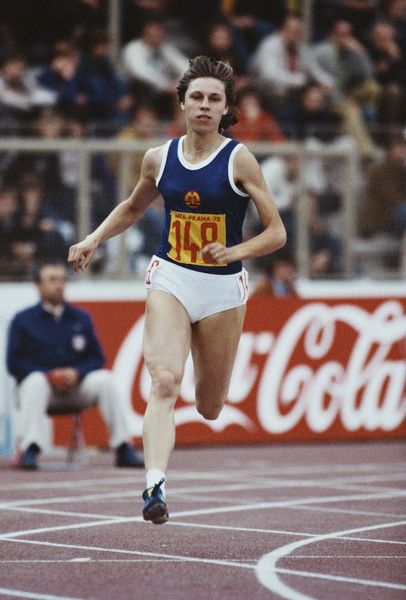
Eluid Kipchoge (1984-Present)
Eliud Kipchoge is the greatest marathon runner of all-time. His level of motivation, mental and physical discipline and consistency is unrivalled. Under the long-term guidance of coach, mentor and friend Patrick Sang, Eliud first burst on the senior international scene as a teenager defeating track icons Hicham El Guerrouj and Kenenisa Bekele to 5000m gold at the 2003 World Championships. Eliud then went on to enjoy a distinguished track career, winning 5000m bronze and silver medals at the 2004 and 2008 Olympic Games, respectively. He also won World 5000m silver in 2007 and his 5000m PB of 12:46.53 sits number six on the all-time lists. After missing out on qualification for the London 2012 Olympics on the track, Eliud and his coach, Patrick Sang, opted to switch to the marathon – it has been an inspired decision. During an unmatched marathon career, Eliud has claimed victory in ten out of 11 marathons, racking up an unprecedented nine successive victories over the 42.2km distance. Besides taking the Olympic marathon title in 2016, the Kenyan’s ground-breaking performance as part of the Nike Breaking 2 project – when running 2:00:25 - suggests he is on the verge of the history-defining achievement. Following Breaking2 and after also memorably destroying the world marathon record in Berlin last year by 78 seconds - courtesy of his stunning 2:01:39 mark – and running the second fastest marathon time in London this year, Eliud believes the time is right for him to prove no human is limited but also inspire future generations. In INEOS Eliud believes he has found the perfect partner to match his vision, and who can inspire him and his team, to show the world that no human is limited.
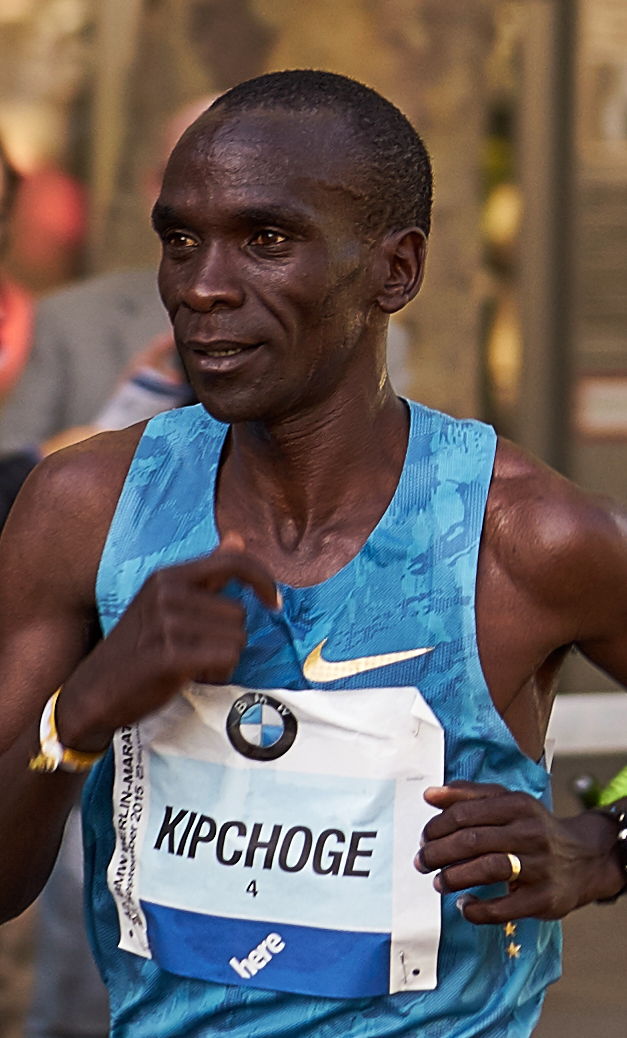
Marion Jones (1975-Present)
Marion Jones was an American athlete, who, at the 2000 Olympic Games, became the first woman to win five track-and-field medals at a single Olympics. Jones early displayed talent on the track, and her family moved several times during her adolescence so that she could compete on prominent junior-high and high-school teams. By the time she was 12, Jones had begun competing internationally. She was also an accomplished high-school basketball player, winning California’s Division I Player of the Year award in 1993. She attended the University of North Carolina at Chapel Hill on a basketball scholarship, and in 1994 she helped the women’s basketball team win the national title. Jones decided to sit out the 1995–96 basketball season in order to focus on track and on the 1996 Olympics in Atlanta. A series of foot injuries, however, prevented her from trying out for the U.S. Olympic team. She then returned to basketball, and in 1997 she was named the Most Valuable Player of the Atlantic Coast Conference Tournament. After graduating in 1997, Jones concentrated on track. At the 2000 Olympics is at Sydney, Australia, she won gold medals in the 100 metres (10.75 sec) and the 200 metres (21.84 sec) and as a member of the 4 × 400-metre relay team (3 min 22.62 sec); she also claimed bronze medals in the long jump and the 4 × 100-metre relay. At the 2001 world championships, Jones won gold medals in the 200 metres and the 4 × 100-metre relay, and she went undefeated during the 2002 season. She took much of 2003 off because of the birth of her son. She returned to athletics in 2004 but was not up to her previous form. At the Olympic Games in Athens that year, she managed only a fifth-place finish in the long jump.

Carl Lewis (1961-Present)
Carl Lewis, American track-and-field athlete, who won nine Olympic gold medals during the 1980s and ’90s. Lewis qualified for the U.S. Olympic team in 1980 but did not compete, because of the U.S boycott of the Moscow Games. At the 1984 Games in Los Angeles, Lewis won gold medals in the 100-metre (9.9 sec) and 200-metre (19.8 sec) races, in the long jump (8.54 metres [28.02 feet]), and as a member of the U.S. 4 × 100-metre relay team, which he anchored. Lewis became the third track-and-field athlete to win four gold medals in one Olympics, joining Americans Alvin Kraenzlein(1900) and Jesse Owensthe latter of whom won the same four events at the 1936 Olympic Games in Berlin that Lewis won in Los Angeles. Lewis added two more gold medals and a silver medal at the 1988 Games in Seoul, becoming the first Olympic athlete to win consecutive long-jump gold medals, with a leap of 8.72 metres (28.61 feet). Lewis had the four best jumps in the competition, and his Olympic title was part of a long string of consecutive long-jump victories that extended over several years during the 1980s. Lewis’s other gold medal was at the 1988 Games came in the 100 metres (9.92 sec). Lewis settled for a silver in the 200 metres. At the 1992 Olympics in Barcelona, Spain. Lewis won two more gold medals, including his third consecutive long-jump title, with a leap of 8.67 metres (28.44 feet). Again anchoring the U.S. 4 × 100-metre relay team, Lewis won his eighth gold medal as the team set a world and Olympic record of 37.40 sec. At age 35 Lewis was a surprise qualifier in the long jump for the 1996 Olympic in Atlanta, Georgia, where he “ran through” his first jump and notched a ho-hum 8.14 metres (26.71 feet) on his second leap. However, his third leap of 8.5 metres (27.89 feet), though well off any records or personal bests, held up as the top jump and earned Lewis his ninth gold medal. In 1997 he retired from competition. Two years later he was named Sportsman of the Century by the International Olympic Committee.

Brigis Kosgei (1994-Present)
Brigid Kosgei is a Kenyan marathon runner who won the 2018 and 2019 Chicago Marathons and the 2019 and 2020 London Marathons. She is the current marathon world record holder for women running in a mixed-sex race, with a time of 2:14:04 achieved on 13 October 2019 at the Chicago Marathon. This beat the previous world record set 16 years ago by 1 minute 24 seconds, and the women's Chicago Marathon record by 3 minutes and 14 seconds. Kosgei finished in the top two in eight of the first nine marathons that she ran. She came second at the 2016 Lisbon Marathon behind Sarah Chepchirchir, in a personal best time of 2:24:45. Her time was faster than the previous course record. In 2017, Kosgei won the Bogotá Half Marathon, and came third at the Copenhagen Half Marathon. She came second in the 2017 Chicago Marathon in a personal best time of 2:20:22. Her time was the sixth fastest ever time at the Chicago Marathon.Weeks later, she won the Honolulu Marathon, beating the course record by over five minutes. In 2018, Kosgei came second in the London Marathon behind. After injuring herself during the Bogotá Marathon, Kosgei decided to run the Great North Run, in order to practice ahead of the 2018 Chicago Marathon. She finished the event second, behind Cheruiyot. Kosgei later won the Chicago Marathon, after breaking away from a group of two other Kenyans and three Ethiopians after 30–35 kilometres (19–22 mi) of the race. She set a personal best time of 2:18:35. During 2018, Kosgei also won a cross country event in Eldoret, Kenya, and the Kalya Half Marathon in Kapenguria, Kenya. Kosgei won the 2019 London Marathon, becoming the youngest woman to win the event. At the 2019 Great North Run, Kosgei won in a course-record time of 1:04.28, 23 seconds faster than the previous half marathon world record set by Joyciline Jepkosgei. She won the 2019 Chicago Marathon on 13 October 2019 in a world record time of 2:14:04, an improvement of her personal best by more than 4 minutes. She beat the previous world record by 81 seconds, and was over six minutes ahead of second place Ababel Yeshaneh. Kosgei wore specially adapted Nike shoes, which have been alleged to have given her a 60–90 second advantage. In January 2020, Kosgei was chosen to lead the Kenyan women's marathon squad for the 2020 Summer Olympics in Tokyo, Japan. The other athletes chosen in the squad were Cheruiyot and Ruth Chepng'etich and it is scheduled to be Kosgei's first appearance at the Olympics. In February, Kosgei finished second to Yeshaneh at the Ras Al Khaimah Half Marathon. Kosgei's time of 1:04:49 was two seconds better than the previous world record. Kosgei and Yeshaneh's time of 30:18 after 10 kilometres (6.2 mi) of the race was only one second slower than the best time set in a track 10,000m event in 2019. Later in the year, Kosgei won the rescheduled 2020 London Marathon by over three minutes. Kosgei broke away from the pack 18 miles (29 km) into the race, and stayed ahead for the rest of the race. She finished in a time of 2:18.58.
